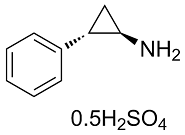Our study revealed that leflunomide inhibited cell proliferation and tumor growth through down-regulation DHODH AbMole Levatin pathway in neuroblastoma cells. Leflunomide could represent a promising new drug candidate for neuroblastoma treatment. Prostate cancer is an important public health problem that affects the male population. After lung cancer, PC is the most frequently diagnosed cancer in men, the fifth cause of death by cancer worldwide, and nearly three-quarters of the registered cases occur in developed countries. The causes of PC remain poorly understood and many gene products show deregulated functions during cancer progression. At diagnosis, patients with early stages of disease are frequently submitted to prostatectomy, external radiation and/or brachytherapy, which removes or destroys tumoral cells that are confined within the prostate. However, despite recent advances in the early detection of localized PC tumors, there is little effective therapy for patients with locally advanced and/or metastatic disease. Patients diagnosed in advanced stages are currently submitted to androgen deprivation therapy, due to the androgen dependency of prostate cells for continued growth and survival. However, it was found that in most patients the effects of this therapy typically last 18 to 24 months, after which the patients develop resistance to hormonal therapy and develop castration-resistant prostate cancer. Unfortunately, the CRPC treatment is limited, ineffective and the molecular mechanisms of its phenotype progression are not well understood. The CRPC is an invariably lethal condition, which frequently metastasize and  is associated with a significant morbility and mortality. Prostate cells require androgens in the cellular microenvironment to proliferate and differentiate. Nevertheless, PC progression and the acquisition of castration-resistant phenotypes have been associated with the activation of other signaling pathways mediated by growth factors that modulate the balance between the cell growth rate and apoptosis. The TGF��1 and its receptors are key components of the TGF�� signaling pathway, which has an important role in carcinogenesis and tumor progression. The signal transduction initiates with the TGF��1 activation, then TGF��1 binds to the type II receptor, which then phosphorylates the type I receptor, and activates its kinase. Phosphorylated TGF��RI, in its turn phosphorylates downstream elements of the signaling pathway. However the inhibitory SMAD7 has the capacity to bind to TGF��RI and effectively attenuate pathway activation. In vitro studies have shown that in PC cells, the TGF��1 signaling pathway has some defects and the restoration of this pathway can suppress tumor growth by inhibiting cell proliferation. Reduced TGFBR2 expression levels are correlated with a shorter survival rate of colon cancer patients, as does the reduced expression of the co-receptor betaglycan in breast and PC patients.
is associated with a significant morbility and mortality. Prostate cells require androgens in the cellular microenvironment to proliferate and differentiate. Nevertheless, PC progression and the acquisition of castration-resistant phenotypes have been associated with the activation of other signaling pathways mediated by growth factors that modulate the balance between the cell growth rate and apoptosis. The TGF��1 and its receptors are key components of the TGF�� signaling pathway, which has an important role in carcinogenesis and tumor progression. The signal transduction initiates with the TGF��1 activation, then TGF��1 binds to the type II receptor, which then phosphorylates the type I receptor, and activates its kinase. Phosphorylated TGF��RI, in its turn phosphorylates downstream elements of the signaling pathway. However the inhibitory SMAD7 has the capacity to bind to TGF��RI and effectively attenuate pathway activation. In vitro studies have shown that in PC cells, the TGF��1 signaling pathway has some defects and the restoration of this pathway can suppress tumor growth by inhibiting cell proliferation. Reduced TGFBR2 expression levels are correlated with a shorter survival rate of colon cancer patients, as does the reduced expression of the co-receptor betaglycan in breast and PC patients.